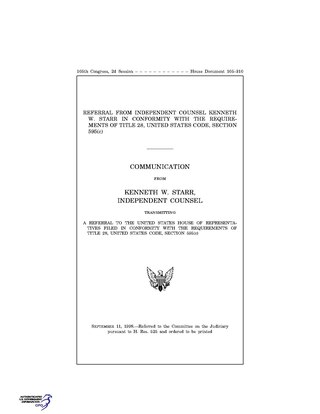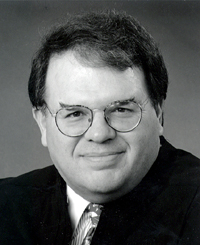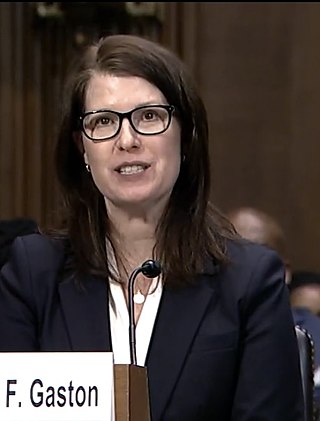Perjury is the intentional act of swearing a false oath or falsifying an affirmation to tell the truth, whether spoken or in writing, concerning matters material to an official proceeding.

The Marihuana Tax Act of 1937, Pub. L.Tooltip Public Law 75–238, 50 Stat. 551, enacted August 2, 1937, was a United States Act that placed a tax on the sale of cannabis. The H.R. 6385 act was drafted by Harry Anslinger and introduced by Rep. Robert L. Doughton of North Carolina, on April 14, 1937. The Seventy-fifth United States Congress held hearings on April 27, 28, 29th, 30th, and May 4, 1937. Upon the congressional hearings confirmation, the H.R. 6385 act was redrafted as H.R. 6906 and introduced with House Report 792. The Act is now commonly referred to, using the modern spelling, as the 1937 Marijuana Tax Act. This act was overturned in 1969 in Leary v. United States, and was repealed by Congress the next year.
Police perjury is the act of a police officer knowingly giving false testimony. It is typically used in a criminal trial to "make the case" against defendants believed by the police to be guilty when irregularities during the suspects' arrest or search threaten to result in their acquittal. It also can be extended to encompass substantive misstatements of fact to convict those whom the police believe to be guilty, procedural misstatements to "justify" a search and seizure, or even the inclusion of statements to frame an innocent citizen. More generically, it has been said to be "[l]ying under oath, especially by a police officer, to help get a conviction."

The Starr Report, officially the Referral from Independent Counsel Kenneth W. Starr in Conformity with the Requirement of Title 28, United States Code, Section 595(c), is a United States federal government report by Independent Counsel Ken Starr concerning his investigation of President Bill Clinton. Delivered to the United States Congress on September 9, 1998, the allegations in the report led to the impeachment of Bill Clinton and the five-year suspension of Clinton's law license.

John Joseph Sirica was a United States district judge of the United States District Court for the District of Columbia, where he became famous for his role in the trials stemming from the Watergate scandal.

Leonard Kevin Bias was an American college basketball player for the Maryland Terrapins. During his four years playing for Maryland, he was named a consensus first-team All-American. Two days after being selected by the Boston Celtics with the second overall pick in the 1986 NBA draft, Bias died from cardiac arrhythmia induced by a cocaine overdose. In 2021, Bias was inducted into the College Basketball Hall of Fame.
Chemical castration is castration via anaphrodisiac drugs, whether to reduce libido and sexual activity, to treat cancer, or otherwise. Unlike surgical castration, where the gonads are removed through an incision in the body, chemical castration does not remove organs, nor is it a form of sterilization. Chemical castration is generally reversible when treatment is discontinued, although permanent effects in body chemistry can sometimes be seen, as in the case of bone density loss increasing with length of use of depot medroxyprogesterone acetate (DMPA).
In the United States, habitual offender laws have been implemented since at least 1952, and are part of the United States Justice Department's Anti-Violence Strategy. These laws require a person who is convicted of an offense and who has one or two other previous serious convictions to serve a mandatory life sentence in prison, with or without parole depending on the jurisdiction. The purpose of the laws is to drastically increase the punishment of those who continue to commit offenses after being convicted of one or two serious crimes.
The Rockefeller Drug Laws are the statutes dealing with the sale and possession of "narcotic" drugs in the New York State Penal Law. The laws are named after Nelson Rockefeller, who was the state's governor at the time the laws were adopted. Rockefeller had previously backed drug rehabilitation, job training and housing as strategies, having seen drugs as a social problem rather than a criminal one, but did an about-face during a period of mounting national anxiety about drug use and crime. Rockefeller, who pushed hard for the laws, was seen by some contemporary commentators as trying to build a "tough on crime" image in anticipation of a bid for the Republican presidential nomination in 1976. The bill was signed into law by Governor Rockefeller on May 8, 1973.
Articles related to criminology and law enforcement.
Crime in Washington, D.C., is directly related to the city's demographics, geography, and unique criminal justice system. The District's population reached a peak of 802,178 in 1950. Shortly after that, the city began losing residents, and by 1980 Washington had lost one-quarter of its population. The population loss to the suburbs also created a new demographic pattern, which divided affluent neighborhoods west of Rock Creek Park from the less well-off neighborhoods to the east.

Richard J. Leon is a senior United States district judge of the United States District Court for the District of Columbia.

In the United States, increased restrictions and labeling of cannabis as a poison began in many states from 1906 onward, and outright prohibitions began in the 1920s. By the mid-1930s cannabis was regulated as a drug in every state, including 35 states that adopted the Uniform State Narcotic Drug Act. The first national regulation was the Marihuana Tax Act of 1937.

The Dallas Police Department, established in 1881, is the principal law enforcement agency serving the city of Dallas, Texas.
Richard M. Roberts is an American attorney. Roberts was a former law enforcement officer who worked as a detective in the Essex County Prosecutor’s Office and Essex County Bureau of Narcotics. After completing law school at Seton Hall University and passing the bar examination, Roberts served as an Assistant Prosecutor in the Essex County Prosecutor's Office.
Edward Jurith served as Acting Director of the Office of National Drug Control Policy from January 10, 2001 to December 7, 2001. He was appointed for this term by President Clinton in 2001, and was then appointed to be the Acting Director of the Office of National Drug Control Policy again in 2009 by President Obama. Since 1994, he also served as ONDCP's General Counsel, Senior Counsel and Director of Legislative Affairs.
Joseph Francis Civello was an American mobster and the leader of the Dallas crime family from 1956 until his death in 1970.

The Fair Sentencing Act of 2010 was an Act of Congress that was signed into federal law by United States President Barack Obama on August 3, 2010, that reduces the disparity between the amount of crack cocaine and powder cocaine needed to trigger certain federal criminal penalties from a 100:1 weight ratio to an 18:1 weight ratio and eliminated the five-year mandatory minimum sentence for simple possession of crack cocaine, among other provisions. Similar bills were introduced in several U.S. Congresses before its passage in 2010, and courts had also acted to reduce the sentencing disparity prior to the bill's passage.

Nazeri bin Lajim, full name Nazeri bin Lajim Hertslet, was a Singaporean drug trafficker. Prior to his arrest in April 2012, Nazeri went to prison several times for drug consumption and several other drug offences, and was said to be addicted to drugs at age 14. Nazeri and his Malaysian accomplice were both brought to trial and found guilty five years later on 8 August 2017.

Marian FitzGerald Gaston is an American lawyer who has served as a judge of the San Diego County Superior Court in California since 2015. She is a nominee to serve as a United States district judge of the United States District Court for the Southern District of California.








